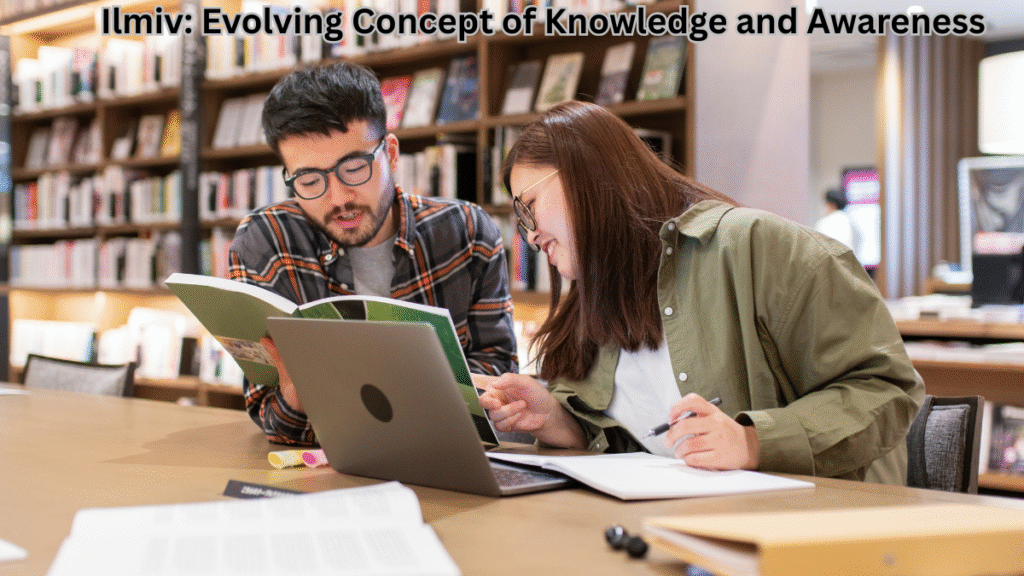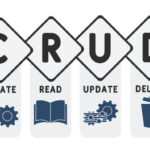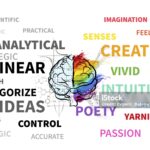In a world where information flows faster than ever before, the concept of ilmiv emerges as a reminder that not all knowledge is equal. Ilmiv, a term rooted in the idea of layered understanding, represents more than the passive gathering of facts; it points to the cultivation of wisdom, discernment, and the art of applying what we know responsibly. For searchers today, the intent behind the word “ilmiv” is not about casual trivia or data—it is about meaningful knowledge that empowers people to act with clarity and awareness in their lives.
The Roots of Ilmiv
To understand ilmiv’s, one must begin with its etymological roots. While the word borrows its cadence from ‘ilm—an Arabic word for knowledge—it stretches beyond traditional interpretations. Ilmiv’s is about comprehension that is both inward and outward.
- Inwardly, it asks how we internalize knowledge and use it to refine our character.
- Outwardly, it demands how we contribute to society through what we learn.
As one historian of thought noted, “Knowledge without humility is information, not wisdom.” Ilmiv tries to bridge that gap by keeping humility at the center of learning.
Why Ilmiv Matters Today
The 21st century is drowning in information. From constant notifications to endless digital feeds, data surrounds us. But the critical problem is not scarcity of information—it is discernment. Ilmiv speaks directly to this crisis by offering a framework that values:
- Depth over speed
- Reflection over reaction
- Application over accumulation
A recent survey of students in higher education revealed that while most felt confident in gathering information, fewer than half felt confident in evaluating its truth. Ilmiv calls us back to evaluation, interpretation, and meaning-making.
The Pillars of Ilmiv
Scholars and educators often describe ilmiv as standing on four primary pillars. These can be seen as stages or qualities of learning:
| Pillar of Ilmiv’s | Description | Modern Relevance |
| Knowledge | Gathering accurate information | Fact-checking in the age of misinformation |
| Understanding | Interpreting meaning and context | Cultural literacy and nuanced judgment |
| Application | Using knowledge effectively | Applying insights to personal and social issues |
| Reflection | Learning from results and failures | Cultivating humility and resilience |
Together, these pillars offer not just a cycle but a compass—guiding how individuals approach both personal growth and societal responsibility.
Ilmiv in Everyday Life
Ilmiv’s may sound abstract, but its presence is deeply practical. Consider a few common scenarios:
- Parenting: A parent can read hundreds of books about raising children, but true ilmiv lies in applying knowledge with empathy, patience, and adaptation.
- Professional Growth: Workers often attend seminars or certification programs. Yet ilmiv’s shows up when they adapt lessons to solve unique problems at work.
- Personal Wellness: Diet plans and fitness trends abound, but ilmiv’s is in discerning which advice suits one’s body and lifestyle.
As one writer put it, “Learning without living is like light without warmth.” Ilmiv’s is the warmth.
Historical Echoes of Ilmiv
Though the word itself feels modern, the spirit of ilmiv’s has appeared across history.
- Ancient Greece: Socrates emphasized self-knowledge as the foundation of wisdom.
- Classical China: Confucius linked education to moral cultivation, not just rote memorization.
- Islamic Golden Age: Scholars integrated science, philosophy, and theology, showing how knowledge could uplift entire civilizations.
In all these cases, the pursuit of knowledge was not detached from virtue. That is precisely what ilmiv’s seeks to reclaim.
Ilmiv and the Digital Age
The digital revolution has transformed how we acquire information. But it has also made discernment harder. Algorithms push what is popular, not necessarily what is true. Here ilmiv takes on a fresh urgency.
- Critical Thinking: Users must learn to verify sources.
- Digital Literacy: Understanding how platforms work becomes part of ilmiv.
- Mindful Consumption: Knowing when to step away from screens is itself an act of ilmiv.
A technologist observed, “In the age of infinite scrolling, wisdom is choosing when to stop.”
The Psychology of Ilmiv
From a psychological perspective, ilmiv’s aligns with cognitive and emotional intelligence. It involves:
- Recognizing biases in thinking
- Regulating emotions to make sound judgments
- Seeking perspectives outside one’s echo chamber
- Practicing empathy when applying knowledge
Neuroscience shows that the brain is not only a storage device but a meaning-making engine. Ilmiv’s therefore, is less about memory and more about integration.
The Ethical Dimension of Ilmiv
Ethics and ilmiv are inseparable. Knowledge used without ethics can become manipulation, exploitation, or even destruction. For example:
- Science: Advances in genetics require ethical reflection on cloning, privacy, and equity.
- Economics: Data analytics can be used for growth but also for predatory practices.
- Politics: Understanding history can help prevent repeating mistakes—but ignoring it can enable authoritarianism.
Ilmiv’s emphasizes that knowledge should not merely serve power; it should serve humanity.
Developing Ilmiv in Education
Modern education often focuses on grades, tests, and measurable outcomes. But ilmiv suggests we need to expand:
- Inquiry-based learning where students ask questions instead of memorizing answers.
- Interdisciplinary teaching that connects science with ethics, technology with history.
- Reflective writing where learners integrate personal experience with academic study.
Some schools have experimented with what they call “deep learning modules,” echoing the same principles ilmiv embodies.
Ilmiv at Work
Organizations increasingly realize that training employees is not just about skills—it is about wisdom. Companies that encourage ilmiv practices may:
- Promote ethical decision-making
- Invest in long-term sustainability over short-term profit
- Encourage mentoring where knowledge is shared responsibly
This is particularly vital in industries like healthcare, finance, and technology, where knowledge carries immense social consequences.
The Spiritual Dimension of Ilmiv
For many, ilmiv cannot be separated from spirituality. Knowledge, in this sense, is not just external but internal. It shapes character, intention, and one’s relationship with the transcendent. Whether religious or secular, the spiritual side of ilmiv’s reminds us that learning is also about becoming.
- A scientist studying the stars may feel awe, not just curiosity.
- A poet writing verses may discover truths beyond logic.
- A meditator reflecting on silence may gain insights without words.
Obstacles to Ilmiv
If ilmiv is so vital, why is it often lacking? Some common obstacles include:
- Information overload leading to paralysis
- Confirmation bias where people seek only evidence that supports their views
- Commercial pressures that prioritize profit over truth
- Disconnection from reflection in a world obsessed with speed
Recognizing these barriers is the first step to overcoming them.
Practices That Foster Ilmiv
Cultivating ilmiv requires intentional practices:
- Journaling: Writing about experiences helps integrate lessons.
- Dialogue: Conversations across differences expand horizons.
- Mindfulness: Pausing before reacting deepens reflection.
- Lifelong learning: Treating education as an ongoing journey rather than a finite stage.
These are not rigid prescriptions but flexible habits anyone can adopt.
Voices on Knowledge and Wisdom
Throughout history, thinkers have offered timeless insights about knowledge. A few resonate deeply with ilmiv:
- “Education is not the filling of a pail, but the lighting of a fire.” — William Butler Yeats
- “The greatest enemy of knowledge is not ignorance, it is the illusion of knowledge.” — Daniel J. Boorstin
- “Wisdom begins in wonder.” — Socrates
Each of these statements underscores that ilmiv is more than knowing—it is awakening.
Ilmiv and the Future
As humanity faces challenges from climate change to artificial intelligence, ilmiv becomes more than a personal virtue; it becomes a global necessity. Our collective survival depends not just on gathering data but on applying knowledge ethically and wisely.
Some futurists believe the next frontier of education will be not simply digital literacy but wisdom literacy. In other words, teaching how to transform information into meaningful, ethical action. That is ilmiv in practice.A Personal Reflection on Ilmiv
When I first encountered the term, it felt abstract. But the more I studied it, the more I realized it was everywhere. It was in my grandmother’s advice that made sense years later. It was in the moment a student applied theory to solve a real-world problem. It was in the quiet humility of a leader who admitted not knowing everything.
Ilmiv is not about perfection. It is about striving to live as learners who care about truth, meaning, and responsibility.
Conclusion: Living with Ilmiv
Ilmiv is not a concept to be admired from afar. It is a practice that demands we rethink what it means to know. In an age of abundance, where information floods our screens, ilmiv reminds us to slow down, reflect, and apply knowledge ethically.
It is as much about character as it is about intellect. It asks not just what do you know? but what will you do with what you know?
For readers seeking clarity in the noisy world of information, ilmiv offers a compass. It points toward discernment, humility, and responsibility. And perhaps, most importantly, it offers hope—that knowledge, when cultivated wisely, can still guide us toward a better, more humane future.







